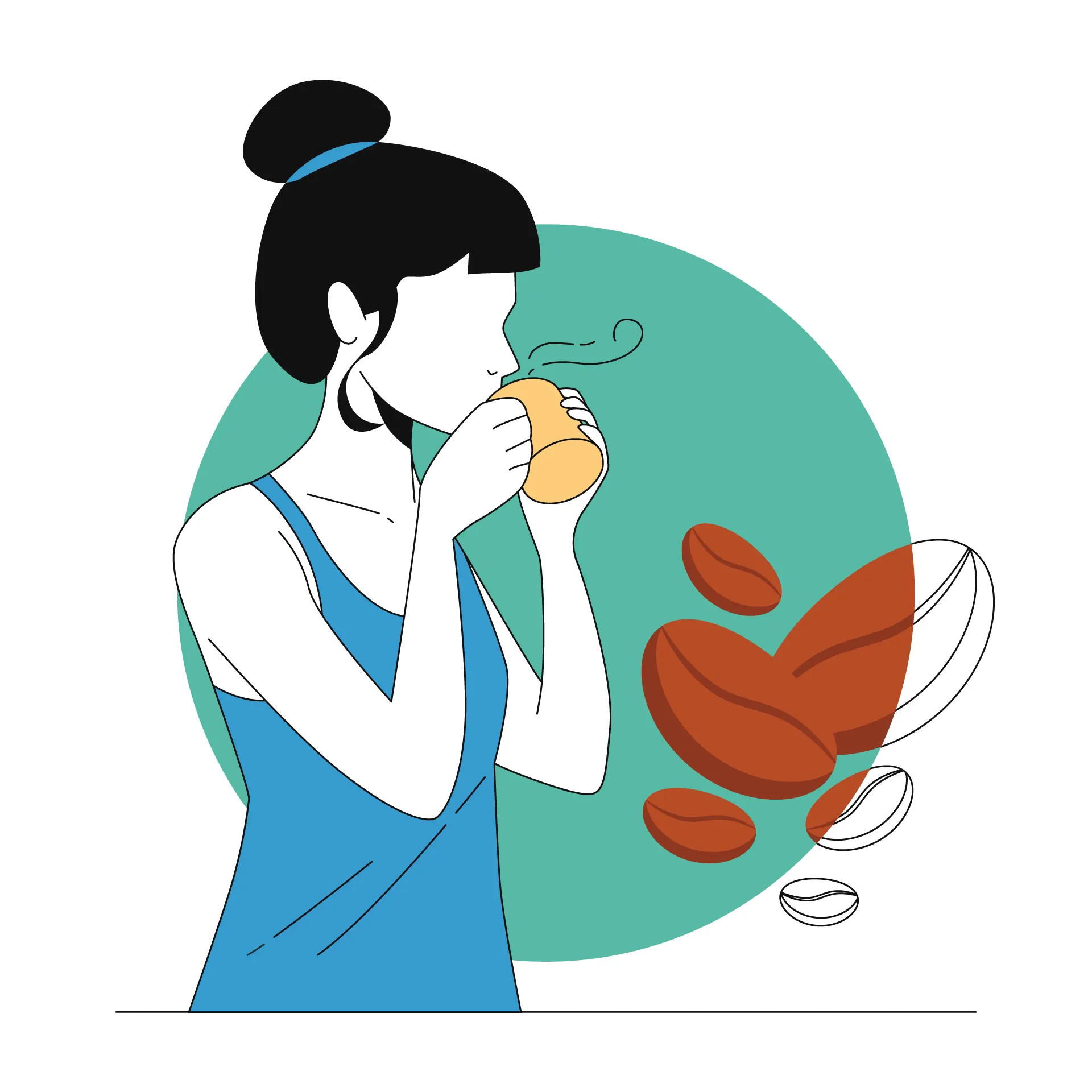Nutrition | 4 min read
What is Caffeine: Learn About its Benefits and Side Effects
Medically reviewed by
Table of Content
Key Takeaways
- Caffeine is a natural stimulant that enhances your energy levels
- Mental alertness and memory improvement are a few caffeine uses
- caffeine side effects include an increased heart rate and anxiety
Who doesn’t love a hot cup of coffee, especially in the morning or afternoon? It perks you up and boosts your energy! Did you know that it is the caffeine in coffee that makes all the difference, and helps feel rejuvenated? If you’re wondering what is caffeine uses, it is a chemical found naturally in tea, coffee or cocoa that works as a stimulant.
Caffeine works by stimulating your central nervous system, heart, muscles and other parts of the body that control your blood pressure. While caffeine uses may increase your blood pressure, it can also result in an increased urine flow. Some conditions for which caffeine is primarily used as a treatment or remedy include:
- Migraine
- Headaches
- Memory improvement
- Mental alertness
- Boosting athletic performance
Caffeine is also present in tea and green tea, apart from coffee. If you are having 1 cup of coffee, you get about 95-200 mg of caffeine [1]. The amount of caffeine in tea is approximately 14-60 mg for 1 cup. If you drink 1 cup of green tea, you get around 30-50 mg of caffeine. To know more about this natural stimulant, caffeine uses and side effects, read on.

What are the different caffeine uses for health you should be aware of?
There are many benefits of including caffeine in your diet. Having caffeine uses improve your alertness and attention. It also sharpens your memory. Caffeine is also known to increase your physical performance. Since it contains antioxidants, caffeine improves your brain function by acting on various neural pathways.
To cure headaches after surgery, doctors recommend that you take caffeine either through IV or by sipping on coffee. In case of tension headaches, taking caffeine along with pain relievers can prove beneficial. You’ll be surprised to know that caffeine can also improve breathing problems in infants!
Having drinks containing caffeine may also reduce the risk of developing Type 2 diabetes. If you are in acute pain, taking caffeine in combination with pain killers helps to reduce it. Adding caffeine in your diet may also prevent cataract formation [2]. If you have caffeine often, you are at a lower risk of developing kidney stones. It is also known to reduce your risk of prostate and endometrial cancer. Combining caffeine with protein powders can also be beneficial for your body as they complement each other well.
Additional read: Types of CancerAre there any caffeine side effects you should be careful about?
While caffeine has many health benefits, high doses can cause unpleasant effects. Though it improves mental alertness, an increased dose may result in nervousness and anxiety. Drinking caffeine-based drinks before you sleep can also result in insomnia [3].
You may like to have a cup of coffee in the mornings for smooth bowel movements. But if you overdo caffeine, you may experience diarrhea or loose stools. One of caffeine’s major side effects is addiction. Though it does not cause an addiction similar to drugs, caffeine does trigger certain chemicals of brain. This can increase your dependance on it.
How do medicines react with caffeine?
There are certain drugs like antidepressants, antibiotics and bronchodilators that may interfere with caffeine uses. If you are having calcium and magnesium supplements, having caffeine may hinder their activity. Ensure you talk to your general doctor or nutritionist for personalized advice in case you are taking any such pills.
What happens when there is an overdose of caffeine?
Having too much caffeine may cause the following symptoms:
- Sweating
- Vomiting
- Anxiety
- Increased heart rate
- Cardiac arrest
- Nausea
- Heart palpitations
When is caffeine not recommended?
If you are experiencing the following conditions, it is better to limit your caffeine intake.
- Bleeding disorders
- Heart ailments
- Diarrhea
- Glaucoma
- Irritable bowel syndrome
- High blood pressure
- Schizophrenia
- Bipolar disorder
Now that you have understood what is caffeine and how it serves your health, ensure that you do not overdo it! To add caffeine to your diet in the right way or get help for any worrying symptoms, talk to experts without delay. Book an in-person or online doctor consultation in seconds on Bajaj Finserv Health and put your health first!
References
- https://medlineplus.gov/caffeine.html
- https://pubmed.ncbi.nlm.nih.gov/18788993/
- https://pubmed.ncbi.nlm.nih.gov/27527212/
Disclaimer
Please note that this article is solely meant for informational purposes and Bajaj Finserv Health Limited (“BFHL”) does not shoulder any responsibility of the views/advice/information expressed/given by the writer/reviewer/originator. This article should not be considered as a substitute for any medical advice, diagnosis or treatment. Always consult with your trusted physician/qualified healthcare professional to evaluate your medical condition. The above article has been reviewed by a qualified doctor and BFHL is not responsible for any damages for any information or services provided by any third party.






